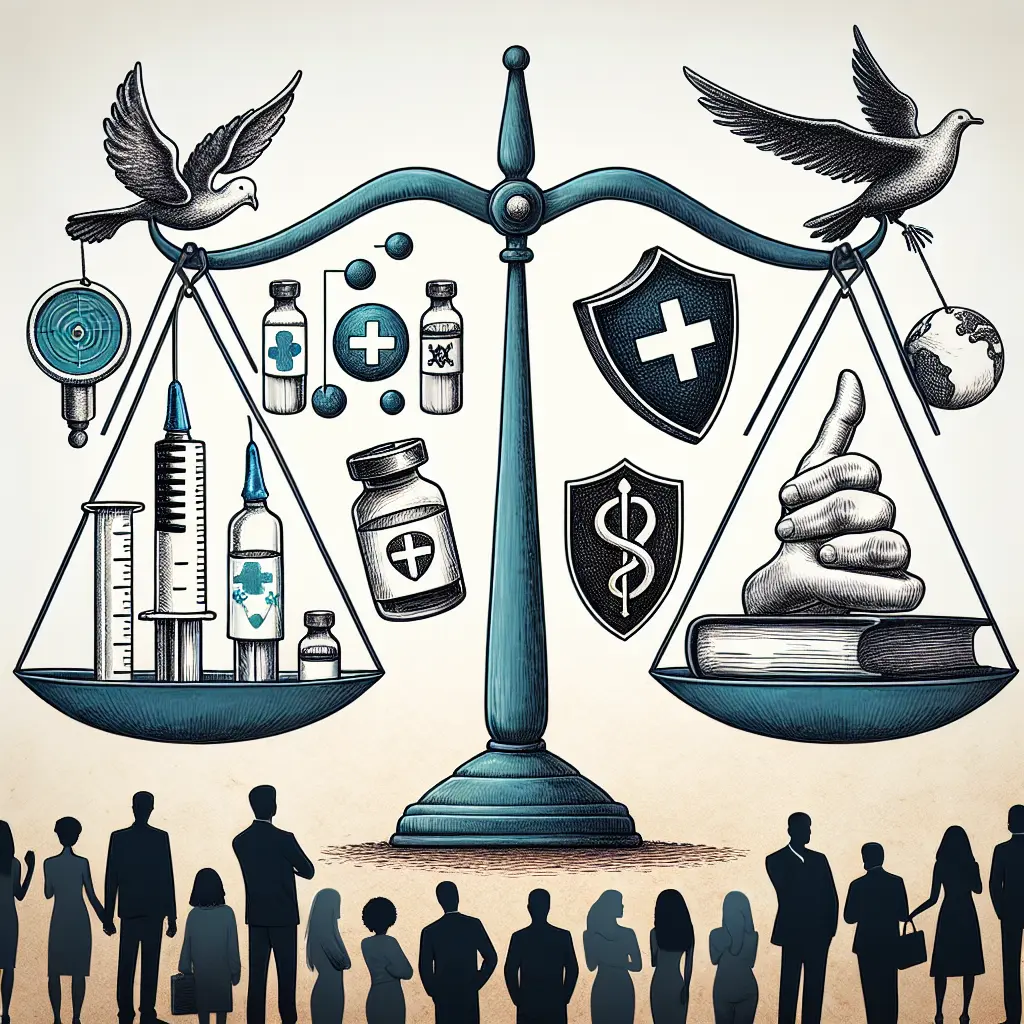
In recent years, the discourse surrounding vaccine mandates has intensified, particularly in the context of the COVID-19 pandemic. These mandates have stirred significant public debate, touching on multiple facets of ethical, legal, and public health considerations. This blog post aims to delve into these aspects, integrating recent news and updates to provide a comprehensive overview of the ethical considerations in implementing vaccine mandates.
The Ethical Landscape of Vaccine Mandates
At the core of the vaccine mandates ethics discussion is the principle of public health ethics. This principle dictates that actions should be taken to promote the health of the population, balanced against individual rights. The mandatory vaccination debate often hinges on this balance, raising questions about what is justifiable for the greater good versus personal autonomy. The COVID-19 vaccine mandates, for instance, have been defended on grounds that they significantly reduce virus transmission and protect vulnerable populations. A study highlighted by recent news demonstrates that mask and vaccine mandates indeed saved lives during the pandemic (source).
However, ethical issues vaccination brings up include concerns over informed consent vaccines. Informed consent is a cornerstone of healthcare ethics vaccine, ensuring that individuals understand the benefits and risks associated with a medical procedure. Critics argue that mandates compromise this principle by imposing medical decisions on individuals, potentially without their full agreement or understanding of the implications.
Recent Developments and Their Ethical Implications
Several recent events have added layers of complexity to this discussion. For instance, former President Donald Trump’s alignment with J.D. Vance, who reportedly supported firing nurses who refused the COVID-19 vaccine, juxtaposes political influence with public health policies (source). On the other hand, Netflix faced a lawsuit alleging harassment and retaliation related to its vaccine mandate policies (source), pointing to potential ethical enforcement vaccination issues within corporate environments.
Moreover, contrasting views from public figures and studies further fuel the debate. The former CDC chief labeled vaccine mandates as one of the greatest public health mistakes (source), suggesting that the ethical implications mandatory vaccines carry might outweigh their benefits in some contexts. On a different note, a controversial study suggested that excess mortality rates were influenced more by democide and vaccine mandates rather than the virus itself (source), although this claim requires careful scrutiny and peer review for veracity.
Legal and Policy Dimensions
The vaccine mandate legality is another critical aspect of this discourse. Legal frameworks in different regions provide varied levels of support for mandate policies. For instance, employee vaccine mandates have been legally upheld in many jurisdictions as employers seek to protect their workforce and customers (source). However, political figures like Perrottet have declared such mandates as 'wrong', reflecting a significant divide in policy perspectives (source).
Ethical vaccination policies must also consider potential consequences beyond immediate public health benefits. For example, mandatory policies could lead to social divisiveness or exacerbate hesitancy if perceived as coercive rather than protective. This is particularly poignant in environments where trust in authorities is low or where misinformation is rampant.
Balancing Acts: Public Health Interventions and Their Complexities
The statement that “as imperfect as they are, public health interventions save lives” summarizes the nuanced nature of health policies (source). While interventions like vaccine mandates can indeed save lives, their implementation must be handled with sensitivity to ethical, legal, and social implications.
The bizarre incident involving RFK Jr. and a bear suit at a public event might seem disconnected but serves as a metaphor for the unpredictability and often surreal nature of public health discourse today (source). It underscores how public figures can influence perceptions and decisions about health interventions, sometimes in ways that are not straightforward or scientifically grounded.
Concluding Thoughts
In conclusion, the implementation of vaccine mandates is an ethically charged issue that requires careful consideration of various factors including public health benefits, individual rights, informed consent, and societal impact. The dialogue must continue to evolve based on emerging data, legal frameworks, and public sentiment.
As we navigate these complex waters, it is crucial to remember that at the heart of these debates are real individuals whose lives and well-being are directly impacted by these decisions. Striking the right balance between collective safety and individual freedoms will require ongoing dialogue, transparency, and empathy.
Thank you for joining me in this exploration of one of today’s most pressing ethical landscapes. May we all strive for a future where public health decisions are made with both wisdom and compassion.
Gregory Stanton